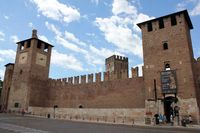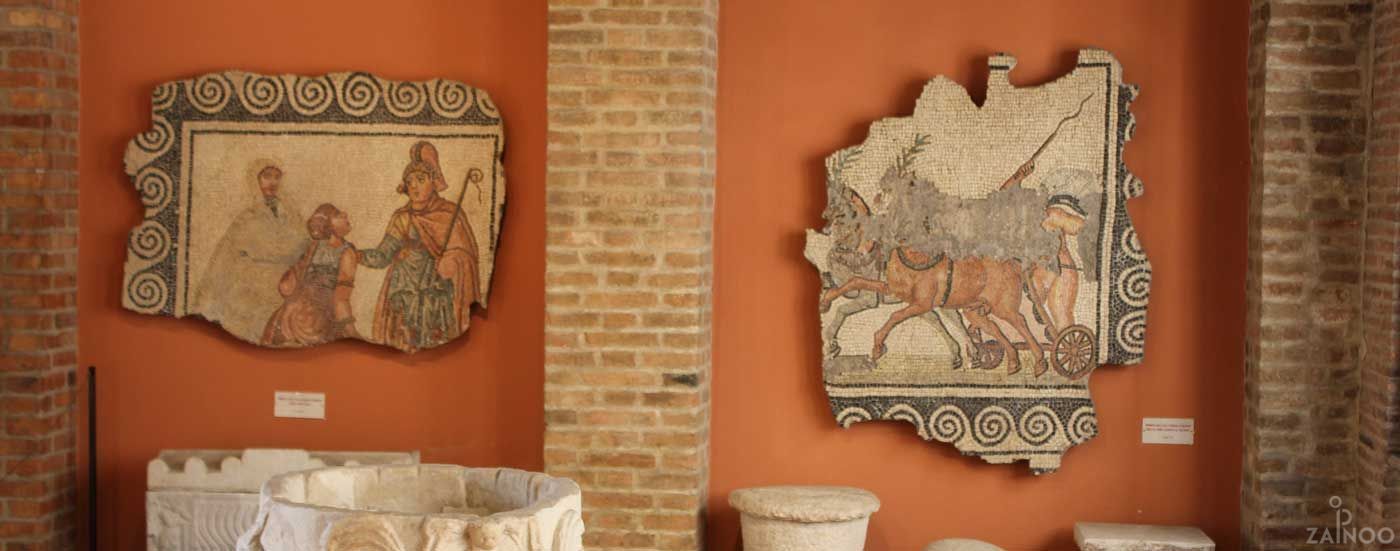History of Verona
Roman metropolis, powerful trading city and World Heritage
Originally inhabited by Euganei and Etruscans, Verona received the town charter under the Romans and became an important base in northern Italy. In the Middle Ages Verona became independent while fighting with the Lombard city league against the German emperor. Under the rule of the Scala family Verona became one of the most powerful cities in northern Italy. It was only with the rise of the Doge’s Republic of Venice that the Verona’s autonomy came to an end, and the city was conquered by Venice in 1405. In the 19th century the region became part of Austria. After numerous battles Verona and the whole Veneto were finally able to free themselves from foreign domination and joined the Kingdom of Italy in 1866.
Roman rule and the climb to a city-state
Thanks to its strategic position between the river Adige and the Po Valley settlements were to be found in today’s Verona even in prehistoric times. Preceded by the Raetia, Euganei and Etruscans, the Romans gave the town charter to Verona in the 3rd century B.C. and established one of the largest bases in northern Italy. Even today, the Roman monuments – especially the magnificent Roman Arena – bear witness to the importance of the city under Roman rule. With the fall of Rome, Verona was successively ruled by the Goths, Lombards and the Carolingians. Otto the Great finally incorporated Verona into Bavaria. During the conflict with the German Emperor Frederick Barbarossa, Verona founded the League of Verona in 1164 and finally joined, together with Vicenza and Treviso, the Lombard league. In the Battle of Legnano in 1176 the Lombard League defeated Barbarossa’s imperial army and Verona gained autonomous status. The new power of the cities led to economic advancement and independent city states formed in northern Italy.
Verona under the rule of the Scala family
The economic rise of Verona brought strong and influential families which increasingly directed the affairs of the city. Under the rule of the Ezzelini family the cities of Vicenza, Padua, Treviso and Belluno came under the authority of Verona. With the death of Ezzelino III a family came to power that was to shape the fate of Verona for a long time: the Scala family (Italian: Scaligeri). They established hereditary rule over the city and led Verona into an unprecedented period of prosperity. With very skilful policies they ruled the city and extended Verona’s influence to the whole of Veneto – except Venice – and further to Parma and Brescia.
The time of foreign domination: Milanese, Venetians, French, Austrians
Family antics and megalomania finally broke the reign of the Scala family in Verona. Opposing noble families placed themselves under the command of the Visconti in Milan and marched with an army to Verona – the heyday of Verona and the dominance of the Scaligeri came to an end. At the same time, the Doge Republic of Venice started the occupation of the Venetian hinterland and conquered Verona without a struggle in 1405. Under the rule of Venice, Verona experienced another golden age, resulting in many significant buildings, palaces and works of art. In 1796 Napoleon and his army took possession of Verona, and in the course of the Napoleonic war Verona finally became a part of Austria in 1815. The Austrians expanded Verona to one of their four main fortresses in Italy. A long period of struggle for freedom began before the Italians finally defeated the Habsburg Empire in 1866 and the Kingdom of Italy was founded.
During the First World War Verona was a supply centre for supplying the Italian troops in the Alps, which fought in costly battles against Austria for supremacy in the Adige and Friuli region. In World War Two Verona gained importance as the headquarters of the puppet government of Benito Mussolini, which was established by the German Reich. In 2000 the ancient city of Verona became a World Heritage Site.



Tweet